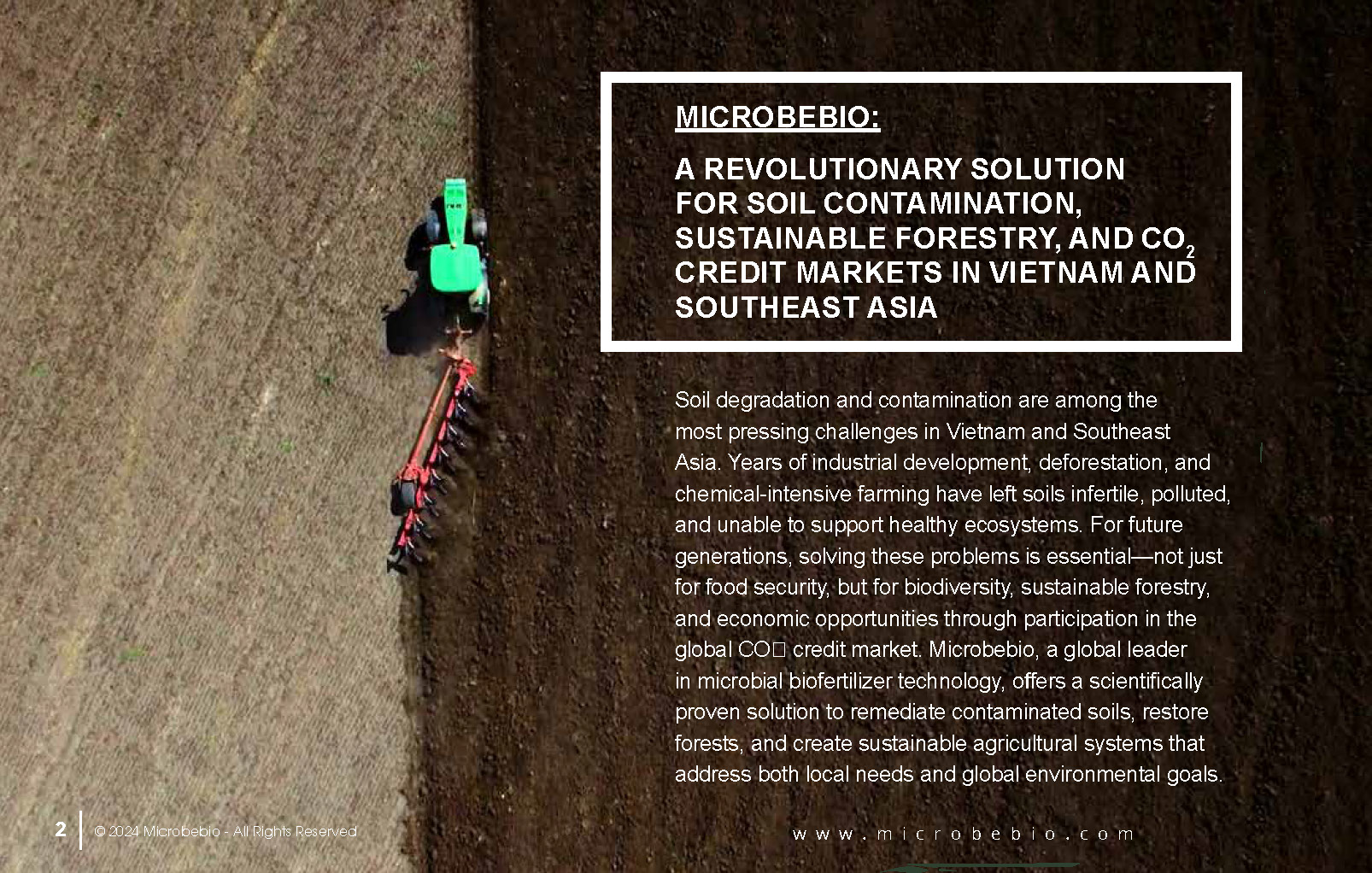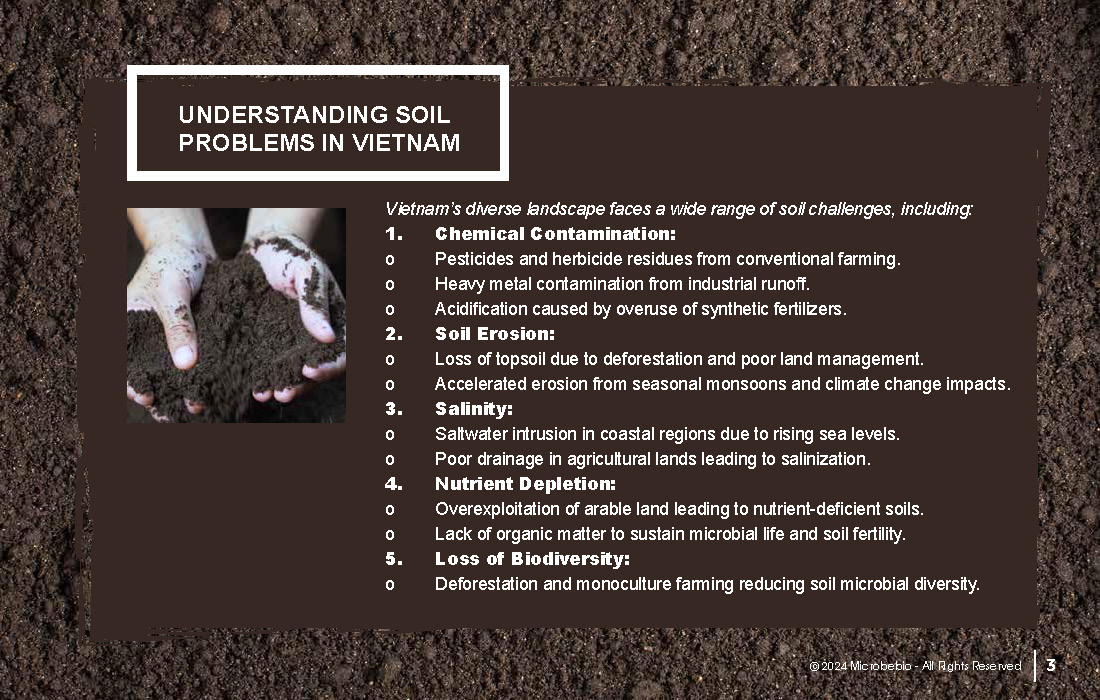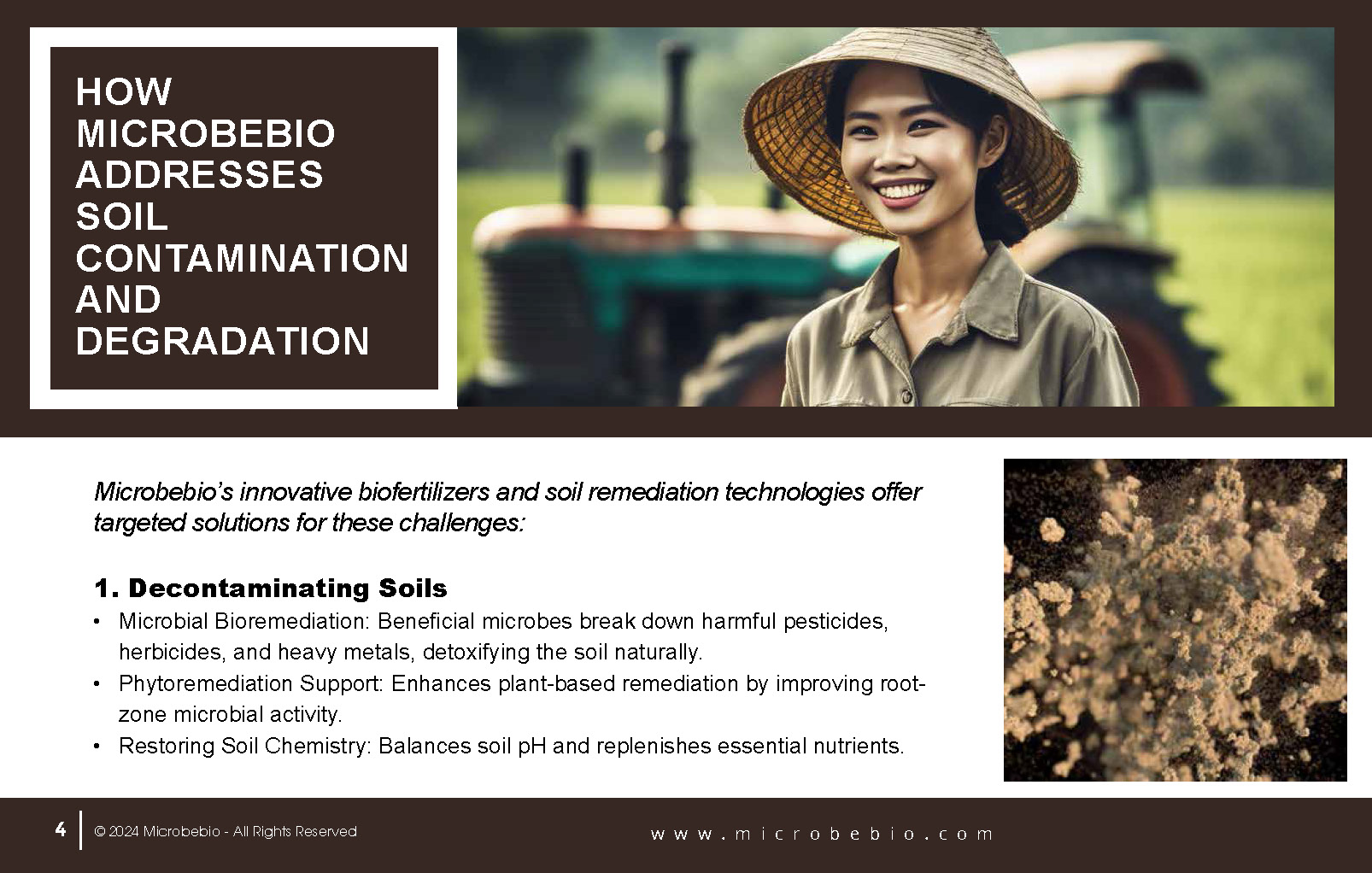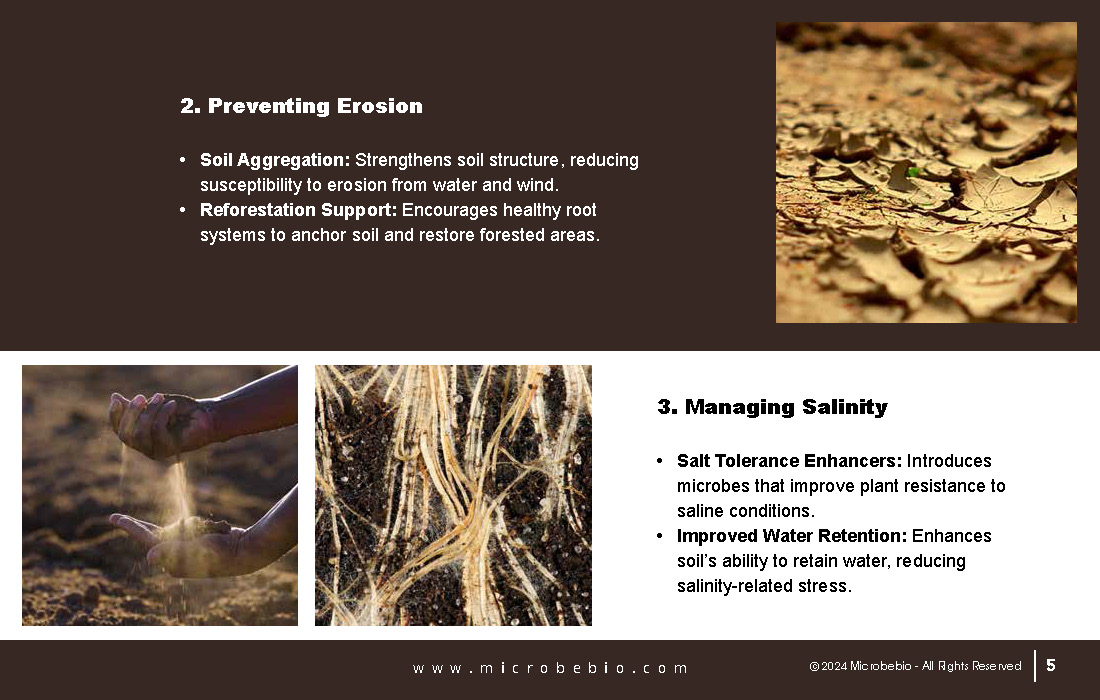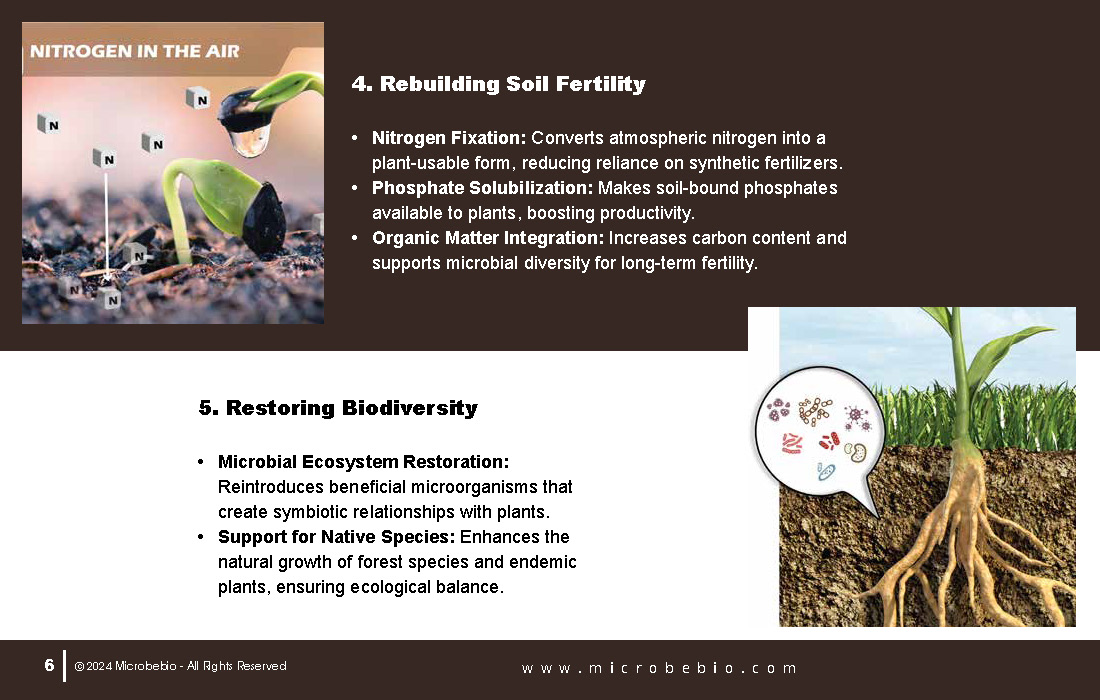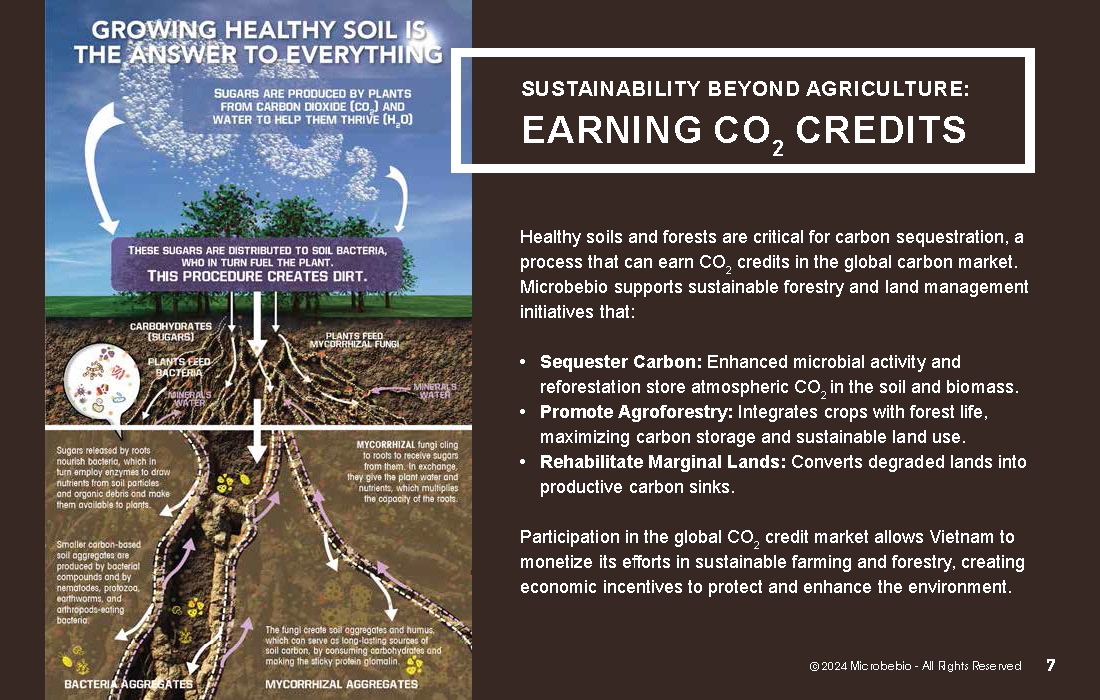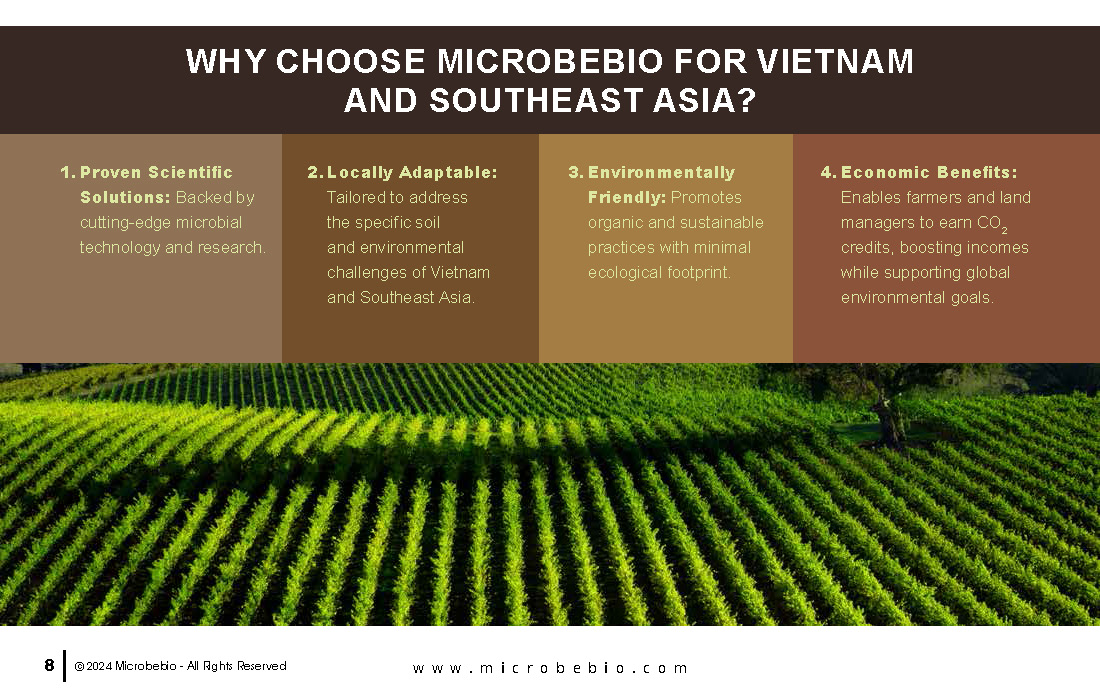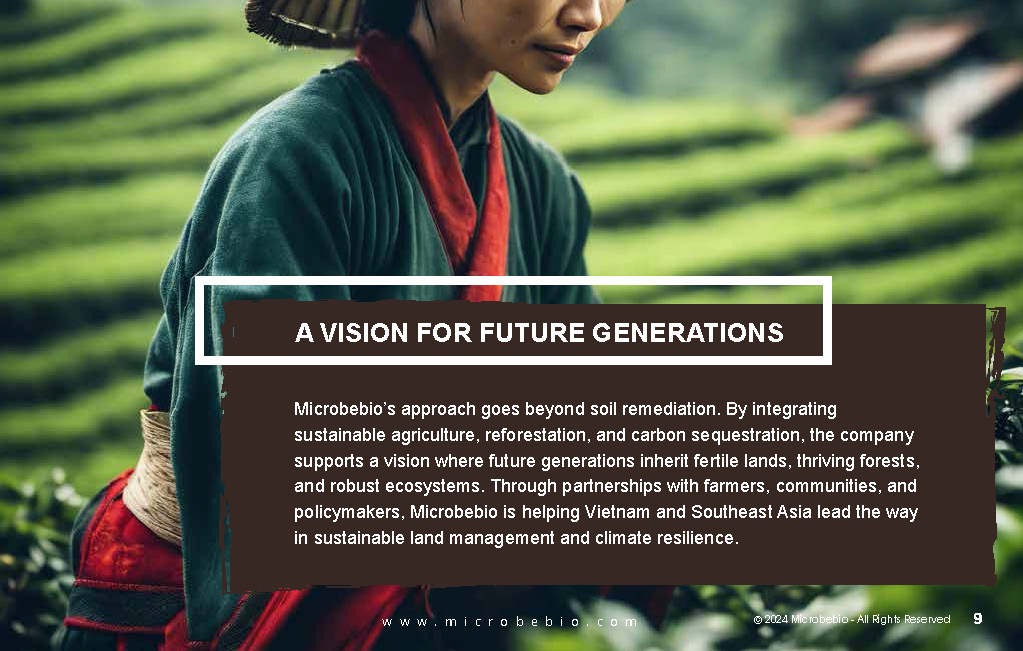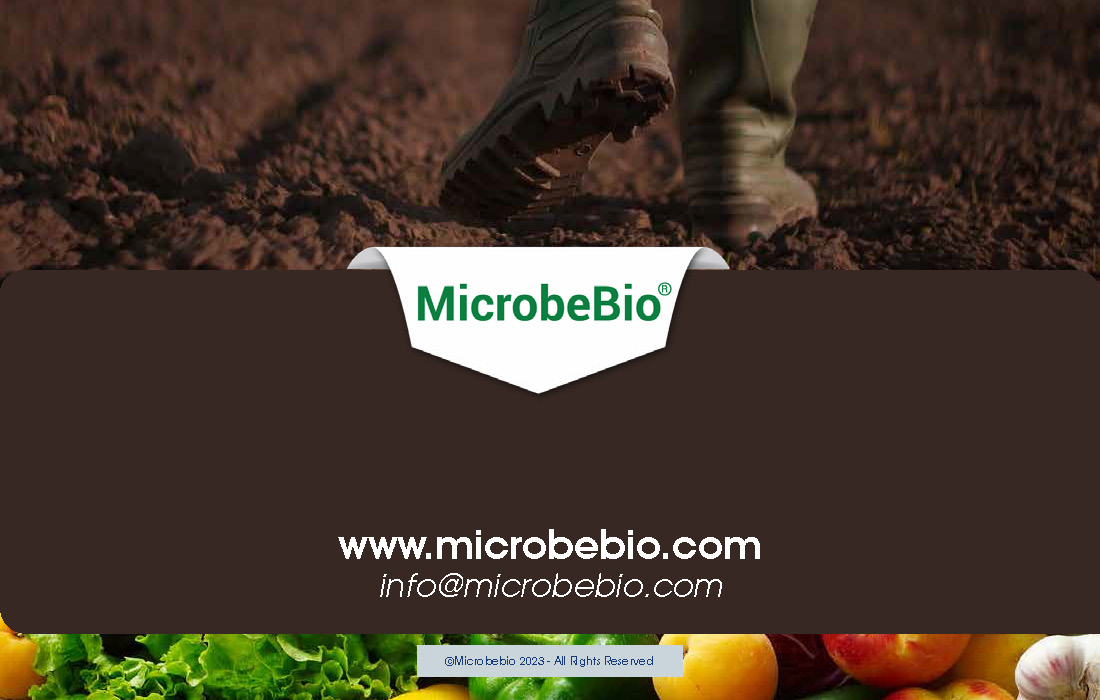Microbebio: A Revolutionary Solution for Soil Contamination, Sustainable Forestry, and CO₂ Credit Markets in Vietnam and Southeast Asia
Soil degradation and contamination are among the most pressing challenges in Vietnam and Southeast Asia. Years of industrial development, deforestation, and chemical-intensive farming have left soils infertile, polluted, and unable to support healthy ecosystems. For future generations, solving these problems is essential—not just for food security, but for biodiversity, sustainable forestry, and economic opportunities through participation in the global CO₂ credit market. Microbebio, a global leader in microbial biofertilizer technology, offers a scientifically proven solution to remediate contaminated soils, restore forests, and create sustainable agricultural systems that address both local needs and global environmental goals.
Understanding Soil Problems in Vietnam
Vietnam’s diverse landscape faces a wide range of soil challenges, including:
- Chemical Contamination:
- Pesticides and herbicide residues from conventional farming.
- Heavy metal contamination from industrial runoff.
- Acidification caused by overuse of synthetic fertilizers.
- Soil Erosion:
- Loss of topsoil due to deforestation and poor land management.
- Accelerated erosion from seasonal monsoons and climate change impacts.
- Salinity:
- Saltwater intrusion in coastal regions due to rising sea levels.
- Poor drainage in agricultural lands leading to salinization.
- Nutrient Depletion:
- Overexploitation of arable land leading to nutrient-deficient soils.
- Lack of organic matter to sustain microbial life and soil fertility.
- Loss of Biodiversity:
- Deforestation and monoculture farming reducing soil microbial diversity.
How Microbebio Addresses Soil Contamination and Degradation
Microbebio’s innovative biofertilizers and soil remediation technologies offer targeted solutions for these challenges:
- Decontaminating Soils
- Microbial Bioremediation: Beneficial microbes break down harmful pesticides, herbicides, and heavy metals, detoxifying the soil naturally.
- Phytoremediation Support: Enhances plant-based remediation by improving root-zone microbial activity.
- Restoring Soil Chemistry: Balances soil pH and replenishes essential nutrients.
- Preventing Erosion
- Soil Aggregation: Strengthens soil structure, reducing susceptibility to erosion from water and wind.
- Reforestation Support: Encourages healthy root systems to anchor soil and restore forested areas.
- Managing Salinity
- Salt Tolerance Enhancers: Introduces microbes that improve plant resistance to saline conditions.
- Improved Water Retention: Enhances soil’s ability to retain water, reducing salinity-related stress.
- Rebuilding Soil Fertility
- Nitrogen Fixation: Converts atmospheric nitrogen into a plant-usable form, reducing reliance on synthetic fertilizers.
- Phosphate Solubilization: Makes soil-bound phosphates available to plants, boosting productivity.
- Organic Matter Integration: Increases carbon content and supports microbial diversity for long-term fertility.
- Restoring Biodiversity
- Microbial Ecosystem Restoration: Reintroduces beneficial microorganisms that create symbiotic relationships with plants.
- Support for Native Species: Enhances the natural growth of forest species and endemic plants, ensuring ecological balance.
Sustainability Beyond Agriculture: Earning CO₂ Credits
Healthy soils and forests are critical for carbon sequestration, a process that can earn CO₂ credits in the global carbon market. Microbebio supports sustainable forestry and land management initiatives that:
- Sequester Carbon: Enhanced microbial activity and reforestation store atmospheric CO₂ in the soil and biomass.
- Promote Agroforestry: Integrates crops with forest life, maximizing carbon storage and sustainable land use.
- Rehabilitate Marginal Lands: Converts degraded lands into productive carbon sinks.
Participation in the global CO₂ credit market allows Vietnam to monetize its efforts in sustainable farming and forestry, creating economic incentives to protect and enhance the environment.
Why Choose Microbebio for Vietnam and Southeast Asia?
- Proven Scientific Solutions: Backed by cutting-edge microbial technology and research.
- Locally Adaptable: Tailored to address the specific soil and environmental challenges of Vietnam and Southeast Asia.
- Environmentally Friendly: Promotes organic and sustainable practices with minimal ecological footprint.
- Economic Benefits: Enables farmers and land managers to earn CO₂ credits, boosting incomes while supporting global environmental goals.
A Vision for Future Generations
Microbebio’s approach goes beyond soil remediation. By integrating sustainable agriculture, reforestation, and carbon sequestration, the company supports a vision where future generations inherit fertile lands, thriving forests, and robust ecosystems. Through partnerships with farmers, communities, and policymakers, Microbebio is helping Vietnam and Southeast Asia lead the way in sustainable land management and climate resilience.
Trending Hashtags
#Microbebio #SoilRemediation #SustainableFarming #CO2Credits #VietnamAgriculture #ForestRestoration #OrganicFertilizer #CarbonSequestration #HealthySoil #ClimateAction #FutureGenerations #EcoFarming #SoutheastAsiaFarming
Join Microbebio in building a sustainable future for Vietnam and Southeast Asia. Together, we can transform soils, restore forests, and create opportunities for future generations.

